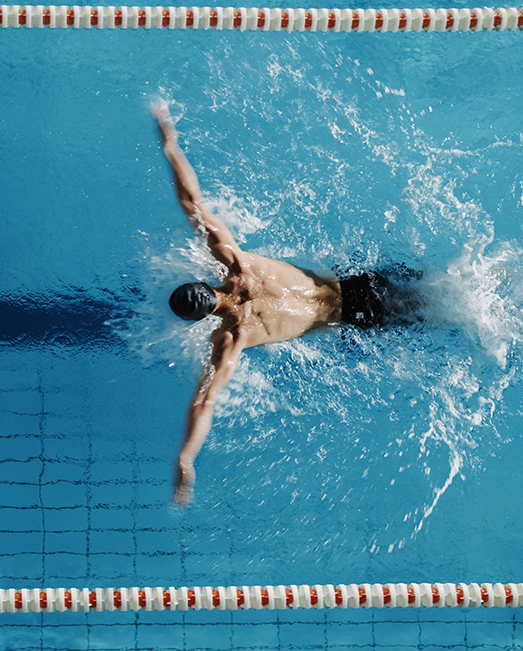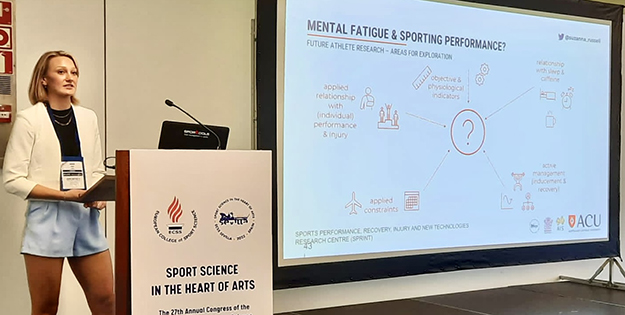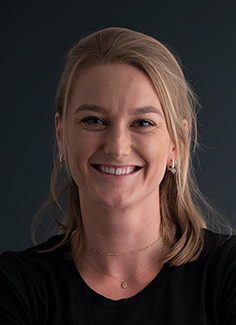Global
Copyright@ Australian Catholic University 1998-2026 | ABN 15 050 192 660 CRICOS registered provider: 00004G | PRV12008
Copyright@ Australian Catholic University 1998-2026 | ABN 15 050 192 660 CRICOS registered provider: 00004G | PRV12008

When, on a Wednesday in March 2022, Ashleigh Barty announced her retirement from professional tennis at the very top of her game, she hinted that mental exhaustion was one of the reasons why she ended her career at such a young age. Indeed, in recent times, many athletes have spoken of the effects that mental fatigue can have on the physical, technical and tactical aspects of their sporting performance. And yet, while physical fatigue is a closely monitored variable in elite sport, managed by coaches and support staff through a range of sophisticated measures, mental fatigue appears to be much less closely managed and understood.
It was for this reason that sports scientist Suzanna Russell was drawn to focus her research on investigating cognitive fatigue and recovery. In early 2017, Suzy commenced her PhD at the University of Queensland in partnership with the Queensland Academy of Sport and Netball Australia, with the title of ‘Mental Fatigue in Elite Sport’.
“It just fascinated me that something which has such a large impact on aspects of physical, technical and tactical performance wasn’t an area that was being addressed,” says Dr Russell, who has worked with Australian Catholic University’s (ACU) Sports Performance, Recovery, Injury and New Technologies (SPRINT) Research Centre since 2021.
“Practitioners would often say, ‘We know that mental fatigue is a problem that affects our athletes, but we don’t know what the solution is’. As a young researcher looking to find a niche in an area of interest, where you know there’s a lot of work to be done and there is potential for positive change, in some ways it was the perfect problem.”
Since completing her thesis and taking on a role as a postdoctoral researcher at ACU in partnership with the Australian Institute of Sport, Dr Russell has forged ahead as a leading expert in a burgeoning area of research.
Her work is focused on shedding new light on mental fatigue in elite athletes: what causes it, how it is perceived by sportspeople and coaching staff, and how it can be managed.
The earliest known experimental study exploring the effect of mental fatigue on physical performance was conducted in 2009. Published in the Journal of Applied Physiology, the research involved 16 participants cycling to exhaustion directly after a demanding cognitive task. It found that mental fatigue limits exercise tolerance in humans through “higher perception of effort”, rather than physiological mechanisms.
Almost a decade later, in 2017, a group of researchers conducted a systematic review of all available literature on the topic – a mere 11 academic articles – and again found that “higher perceived exertion” was the most important factor for the negative impacts of mental fatigue.
“From then onwards, we’ve just seen this massive explosion of interest in the area,” says Dr Russell, who has worked closely with elite sporting teams to investigate the problem.
“I think the biggest driver is that people have started to see the impact that mental fatigue can have on aspects of sporting performance. What is really commonly reported by athletes is that the increased perception of effort – things feeling harder when mentally fatigued than they usually do – is really strong.
“So researchers want to find out more about the mechanisms and what exactly is going on, and we also have interest from the practical side of professional sport – they’re saying things like, ‘This is a problem we’ve ignored for too long, and it’s common but complex, and really hard to assess and manage’.”
While her early studies noted that the was “a lack of clarity in both the definition of [mental fatigue] and how to assess what constitutes a mentally fatigued state in elite sport settings”, Dr Russell’s more recent research has made progress in both areas.
“In the past few years, we’ve definitely gained a much clearer understanding of the signs and symptoms of mental fatigue for athletes,” she says.
These include proven impacts that mental exhaustion can have not only on physical performance, but also on the lifestyle choices of athletes, affecting things like diet, exercise, emotional regulation, and overall motivation.
“We know that if an athlete is feeling cognitively fatigued, they may be less likely to work as hard on a gym session and athletes and staff report they may be more likely to make less disciplined diet and behavioural choices,” Dr Russell says. “But we also see changes in behaviour – disengagement and decreased motivation, a decline in the ability to regulate emotion, and negative effects on concentration and decision-making.”
In one of around a dozen studies she has conducted in recent years, Dr Russell and her colleagues worked with elite athletes from the Queensland Firebirds, who compete in Australia’s premier professional netball competition.
Before training sessions over the 16-week preseason, athletes were tested for the biomarkers cortisol and alpha-amylase and questioned on their level of physical and mental fatigue.

Perhaps surprisingly, the study revealed that those who felt mentally drained perceived themselves to be less ready to perform during their on-court session, while those who reported physical fatigue, perceptually continued to perform well.
“The athletes’ perception was that mental fatigue had a bigger impact on their readiness to perform than physical fatigue,” says Dr Russell, who explained her findings in an ABC News article.
She points out, however, that several factors can affect the perception of both mental and physical fatigue.
“Anecdotally, it might be that athletes are accustomed to feeling physically fatigued, and they’re taught to manage and adapt to that feeling, whereas the education around feeling mentally fatigued and then adapting and working through that is less commonly assessed.”
In other words, elite athletes spend years learning how to adapt to physical tiredness, and push through when the going gets tough. When it comes to mental exhaustion, however, they’re less likely to be equipped with the strategies to manage this aspect of fatigue.
This is where researchers like Suzy Russell and others are heading with their work: so-called “brain endurance training” that teaches athletes how to deal with cognitive fatigue.
“We’re starting to look at the effectiveness of various methods of training to potentially develop a tolerance or a resilience to mental fatigue in a sport-specific way,” says Dr Russell, who is working closely with the Queensland Academy of Sport on this project.
“So it’s not just about avoiding mental fatigue, it’s actually trying to induce it in training and get athletes used to the feeling of performing through mental fatigue, so they can adapt and perform. We also need to educate practitioners to understand that it’s quite similar to how athletes train through physical fatigue – it’s just that the tools and equipment look a bit different.”
Whether or not modern-day athletes face unique pressures – with the rigours of elite competition and the demands of sponsors, governing bodies, fans and the media all taking their toll – remains a matter of conjecture.
Nowadays, many athletes can rely on sport as their sole source of income, meaning they may be less likely to experience the cognitive fatigue associated with juggling work and study commitments alongside their athletic careers.
“On the one hand,” says Dr Russell, “the work dynamic has progressed to the point where there are full-time professional athletes in many more sporting codes, and this increased professionalism might be seen to actually reduce the pressure on athletes – especially male athletes, who often have higher pay and less of a need to study or work in other jobs than female athletes.”
On the other hand, she points to the pervasive influence of social media as a huge challenge for modern-day sportspeople; one that athletes commonly cite as a source of mental fatigue.
“There’s a growing body of research showing that high levels of social media engagement can acutely impact sporting performance,” she adds. “Athletes are constantly connected, and subject to having their performance evaluated and assessed, and just thinking about sport all the time can be mentally fatiguing; it can mean that athletes struggle to disengage and cognitively recover.”
In terms of short-term strategies to avoid or minimise mental fatigue, emerging research has explored a range of novel measures – for example, engaging in systematic breathing and mindfulness strategies, and several nutritional interventions including caffeine and creatine supplements – some of which have been shown to be effective.
“Some research on interventions that has been done in a lab-based setting shows a lot of promise,” says Dr Russell, adding that more research is needed to confirm how this might work in real-life scenarios.
She remarks that it is an exciting time to be researching mental fatigue and mental recovery, not only because it’s relatively new field of study with many unanswered questions, but also because it has the potential to make a positive impact on the performance and wellbeing of all human beings – both sport stars and everyday people
“I’m also really passionate about promoting mentally healthy environments, whether that’s in sport or in other many domains, because the wellbeing of people is something we can all play a positive role in.”
Dr Suzy Russell is a postdoctoral research fellow investigating mental fatigue and recovery at ACU in partnership with the Australian Institute of Sport and Queensland Academy of Sport. Suzy works with athletes and novel technologies and is intrigued by maximising human performance.

Passionate about exercise and sport science? Explore our courses.
Copyright@ Australian Catholic University 1998-2026 | ABN 15 050 192 660 CRICOS registered provider: 00004G | PRV12008